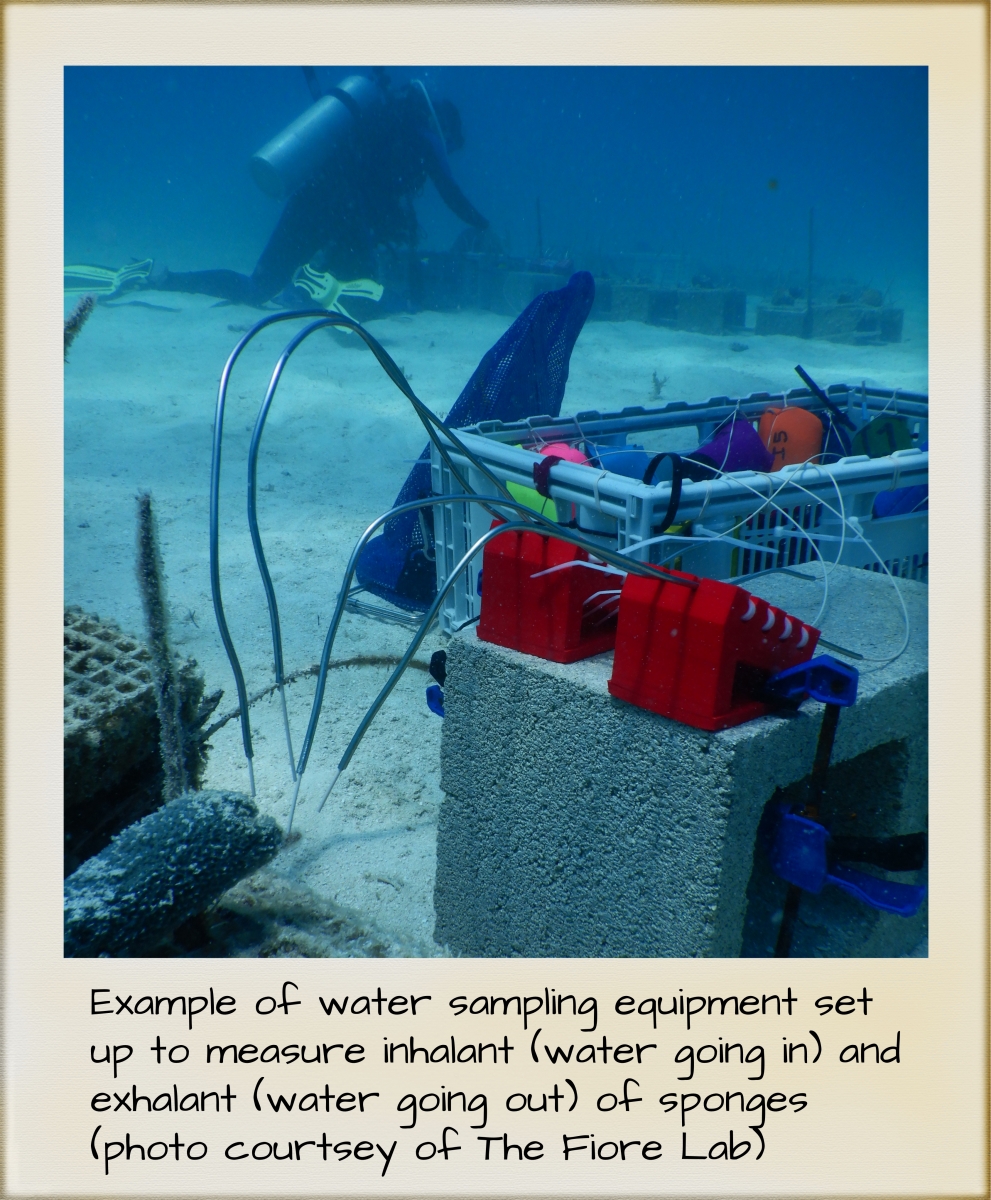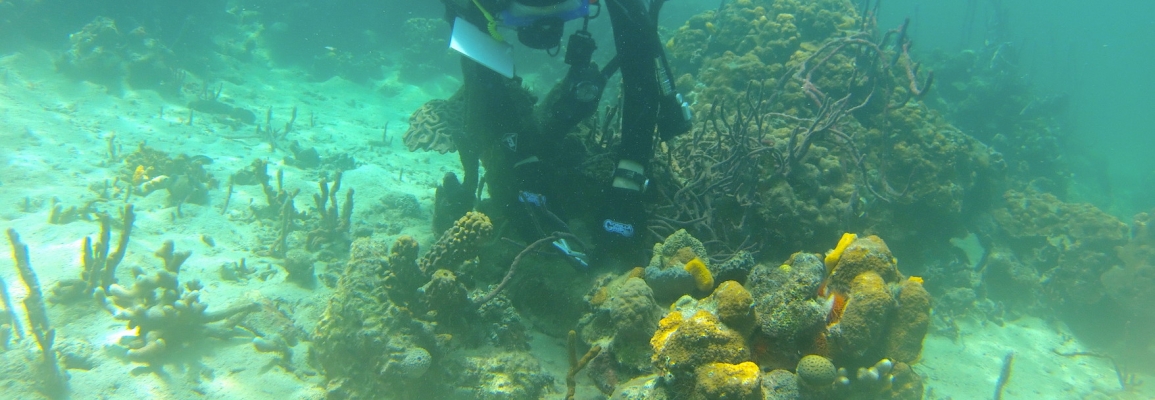What can we learn from sponge research?
Sponges are a little-known type of organism to most K12 students, therefore they offer a unique opportunity for inquiry when teaching about biological classification, ecology, history of life on Earth, form and function, adaptations and habitats, biochemistry, cell biology, ecosystem services, impact of environmental factors such as climate change on coral reefs and other topics.
The purpose of this 5E Learning Cycle is to help science educators integrate sponge ecology concepts into their Earth and Environmental Science or Biology courses in high school. The module introduces the basic biology of sponges and their role in coral reef. Students learn about authentic scientific studies being carried out in The Fiore Lab at Appalachian State University, and practice how to interpret and analyze sponge research data. The activities are aligned with NGSS performance expectations.
These educational activities were developed in collaboration with Dr. Cara Fiore (App State Department of Biology) and Jackie Keleher while she was a graduate student at Appalachian State University. To learn more about their research involving sponges and nutrient cycling in coral reefs, visit the Fiore Lab page: https://fiorelabsymbiosis.org/

Learning Module Resources:
 |
|
 |
|
| |
 |
|
 |
|
 |
|
